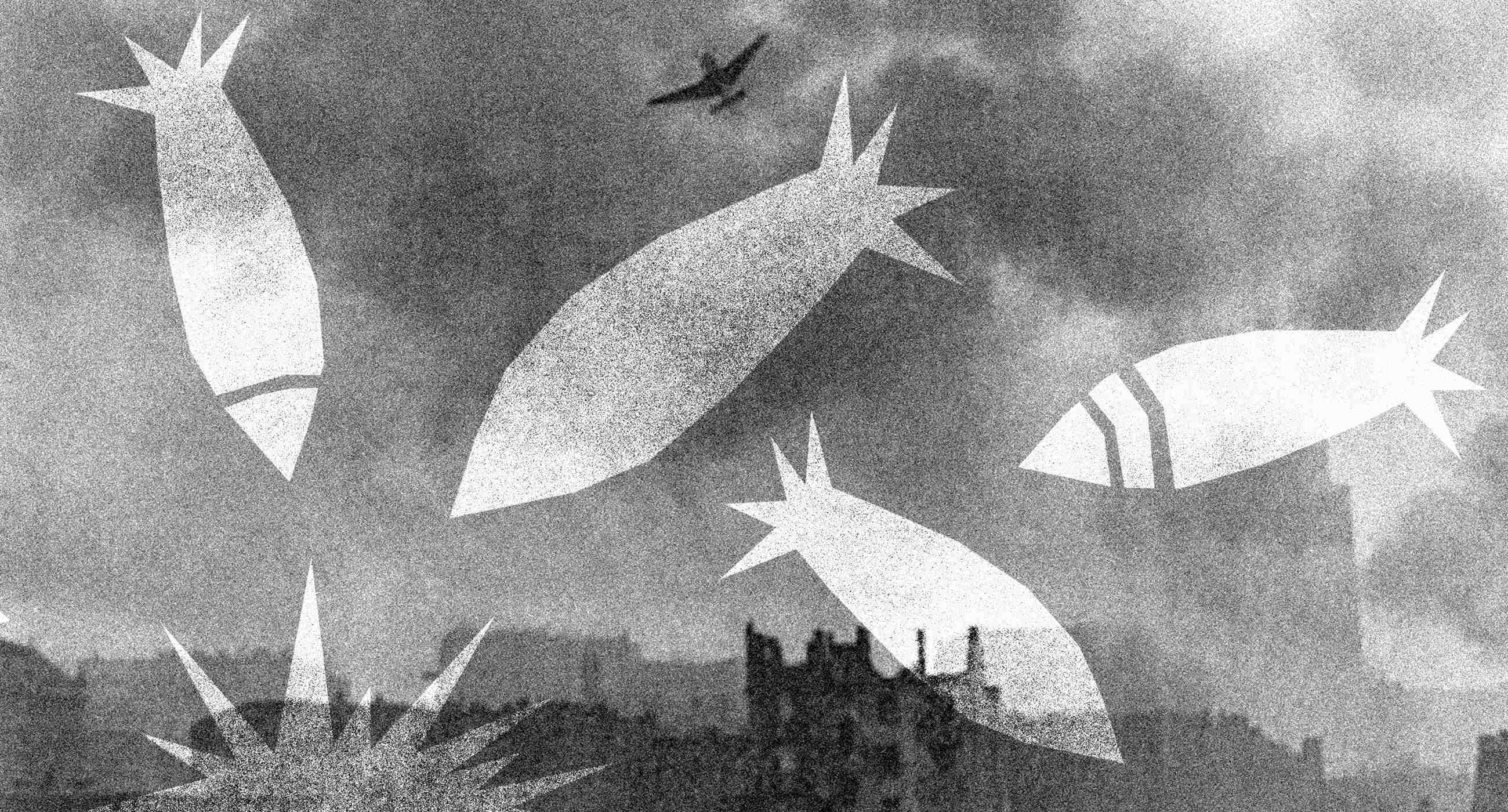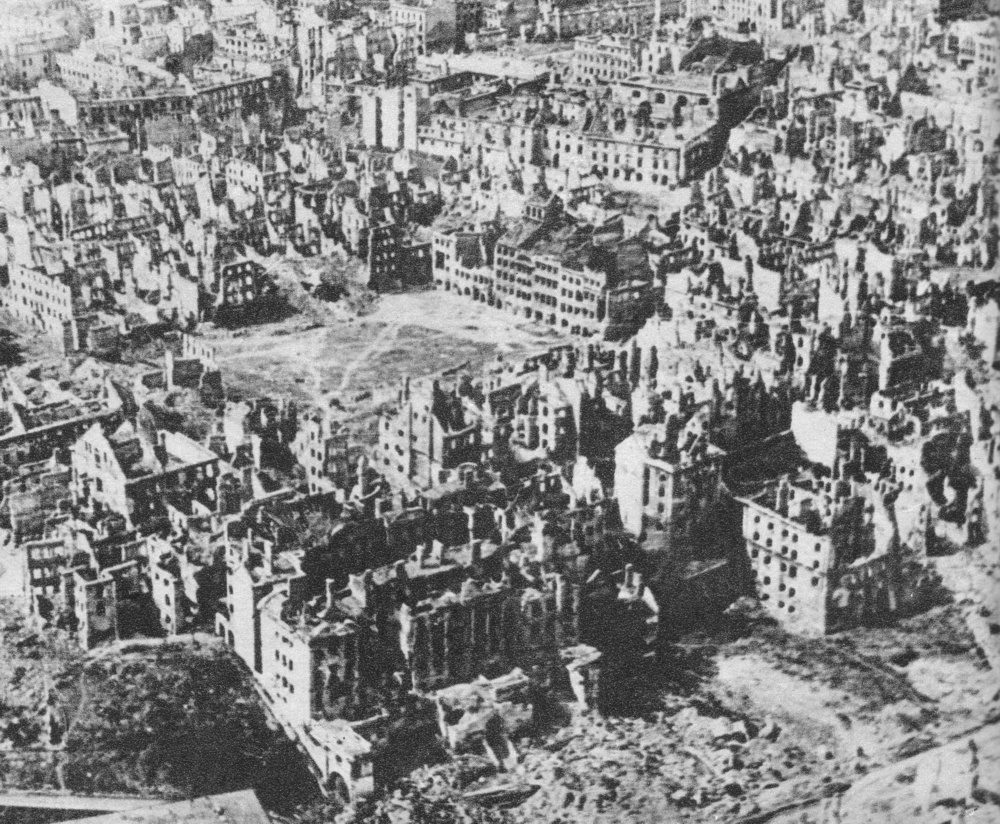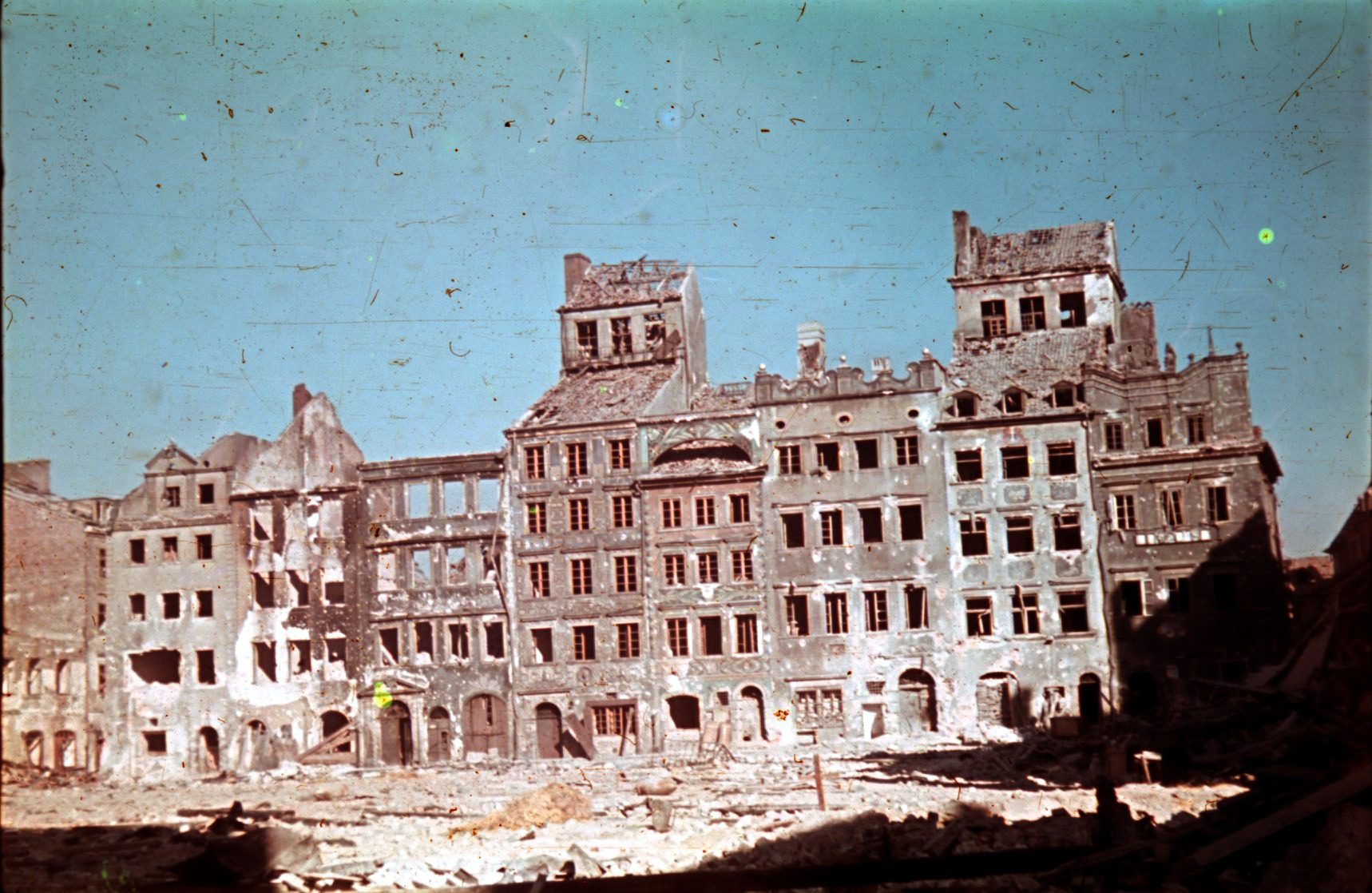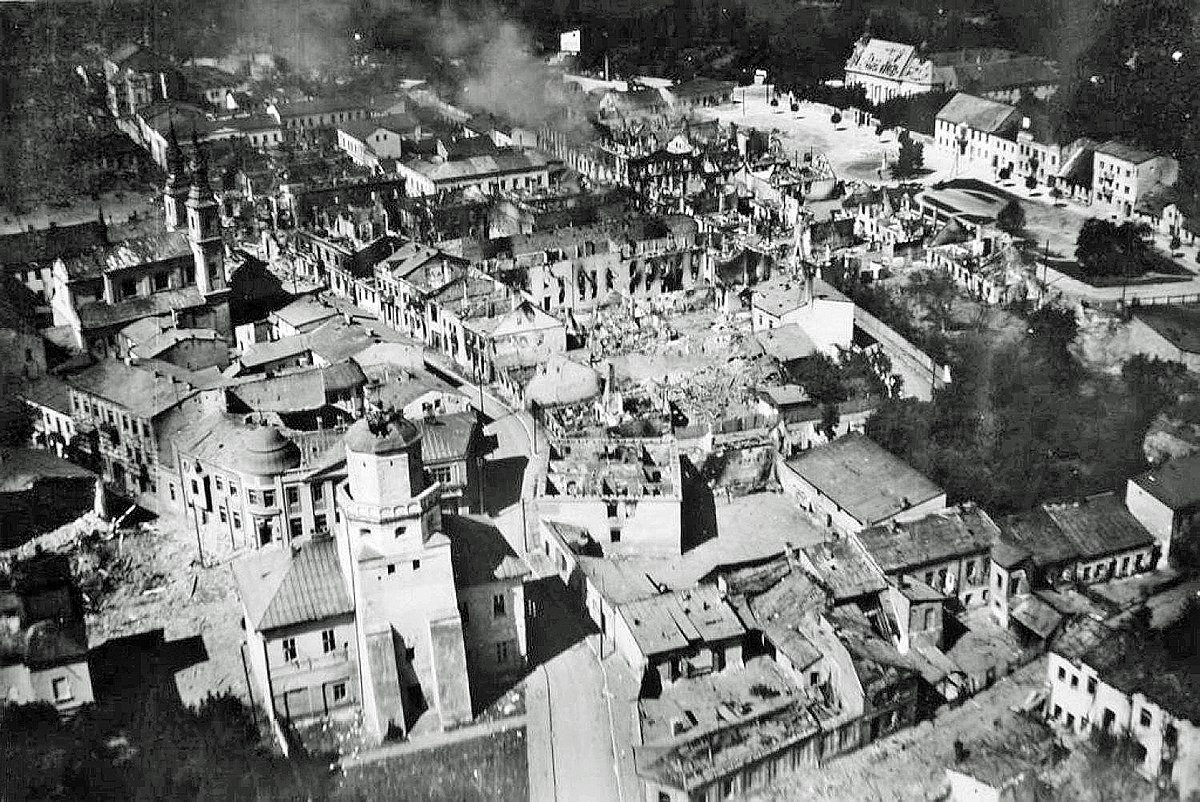At the beginning of the year, Poland received an official refusal from Germany to negotiate reparations for World War II. Official Berlin emphasized that the issue of reparations is closed, and the German government will not start negotiations on this issue. Instead, Polish Prime Minister Mateusz Morawiecki said that Warsaw would continue to insist on its demands for reparations from Germany. The Polish head of government called it “fundamentally important for all Poles.” In her special material for Zaborona, journalist Tetiana Ivanska figured out what further plan Poland has for reparations and how this story could affect a full-scale war in Ukraine.
Were there reparations: what has Poland already received from Germany?
The Polish state suffered some of the greatest destruction and losses among European countries during the Second World War, both material and human. 62% of the industry was destroyed, the infrastructure was damaged by 85%, and about 16.7% of the pre-war population died. Warsaw was in ruins. Only Ukraine and Belarus suffered destruction on a similar scale.

The Warsaw ghetto destroyed by the order of Adolf Hitler after the suppression of the uprising there in 1943. View to the northwest, with the Krasiński garden on the left and Świetoerska Street on the right, circa 1950. Photo: Wikimedia
In addition, the Polish authorities now emphasize that for their country, World War II ended with the Soviet occupation and inclusion in the so-called Warsaw Pact (an agreement on a military alliance between countries over which the USSR established control after the war). That is why the issue of reparations was actually under the control of the Soviet Union.
At the Potsdam Conference in 1945, Poland received a part of East Prussia and the territory of the city of Danzig (modern Gdansk) as reparations. There was no monetary compensation, as there was for other Warsaw Pact countries. Instead, a significant part of the reparations consisted of German industrial assets. In total, about 400,000 railroad cars, equipment from 2,885 factories and 96 power plants, 340,000 machine tools, 200,000 electric motors, 1.3 million cattle, 2.3 million tons of grain, 16 tons of tobacco, etc. were taken from Germany. In addition, German citizens were forced to work in the republics of the former USSR.
On August 23, 1953, the Council of Ministers of the Polish People’s Republic adopted a resolution stating that Germany had already largely fulfilled its reparations obligations, and therefore, in the interests of the peaceful development of the German Democratic Republic (GDR), the Polish government of the time decided to refuse to pay compensation.

The Polish capital Warsaw destroyed by the German Nazis, January 1945. Photo: Wikimedia
Today, the Polish authorities emphasize that the resolution on the refusal of war reparations is not a legal document, as it violated the Constitution of July 22, 1952, which was in force at the time. According to the Constitution, the ratification and denunciation of international treaties was the responsibility of the Council of State, not the Council of Ministers. Warsaw once again emphasizes that the document was imposed on the Polish government by the USSR.
What does Poland demand from Germany and what are its arguments?

Arkadiusz Mularczyk. Photo: Wikimedia.
Deputy Foreign Minister Arkadiusz Mularczyk is in charge of compensation issues in the Republic of Poland. He is the government commissioner for war reparations. Mularczyk emphasizes that the issue of compensation is not only morally, but also politically and legally open for Poland.
In an interview with Zaborona, Mularczyk said that the Polish government began work on a report on Poland’s military losses in World War II in 2017. It involved 33 scientists from various fields, including economists, property appraisers, and historians. According to the official, the document now has thousands of pages. It contains everything related to military, demographic, material, and cultural losses.
“War crimes and genocide have no statute of limitations, and the calculation can be requested at any time. We started collecting documents 5 years ago and completed our report on September 1, 2022, so the war in Ukraine has nothing to do with it. Although, of course, the Poles and the world can now look at this issue with a deeper understanding because they see what is happening in Ukraine. They can appreciate and understand how much Poland and even the part of Ukraine that was part of it at the time were destroyed,” Mularchyk explained.
Poland’s losses during World War II also affected its future development. The country lost entire cities and towns, its museums were looted, and its architectural monuments were burned. Poland became one of the poorest countries in Europe, and the consequences of this, according to Mularchyk, are still felt today.
Instead, the government commissioner for war reparations emphasizes, Germany enriched itself by using Poles who worked in forced labor. The reparations that Poland did receive after the Potsdam Conference are called fiction by today’s rulers, i.e. the Law and Justice party because, after the war, the country was occupied by the Soviet Union, which managed the money and continued to rob the Poles.

Warsaw Uprising in Poland, August 1944. Market Square of the Old Town, Dekert side. A rare Agfacolor photo. This is not a colorized photo — the author Ewa Faryaszewska was a corporal in the Polish Home Army and took 31 color photographs during the Warsaw Uprising. Photo: Wikimedia
“Not only did we not receive reparations, but we lost the right to them for decades. In addition, we also sold our coal to Russia at reduced prices,” emphasizes Mularchyk.
In addition to compensation from Germany, Poland is also working to collect facts about Moscow’s crimes. In this matter, the Poles will be guided by the experience of the Baltic states. Following the example of Latvia, they are preparing their own report, which will be presented to the government after processing.
The amount of reparations that Poland wants to receive from Germany is more than $1.3 trillion. The largest part of it — more than $900 billion — is an estimate of the loss of life of 5.2 million Polish citizens (according to official figures, this is the number of Poles who died during the war). Poland is also asking for more than $170 billion for the infrastructure destroyed during the war.
Despite the note from official Berlin, the diplomatic dialogue continues, Mularchyk emphasized. But if it is not successful, the Polish authorities are preparing for international courts. It has already appealed to the UN with an official request for cooperation and support and realizes that this could take years. Warsaw will also appeal to the US Congress if the issue does not move forward.
Returning to reparations: why did Warsaw raise this issue again?

Tomasz Walczak. Photo: Super Express
Tomasz Walczak, a political expert, and journalist believes that the reparations will most likely be forgotten, as all the controversial issues were settled in the early 1990s when Poland and Germany officially agreed on borders. Therefore, raising the issue of reparations is nothing more than political flirting with voters (parliamentary elections will be held in Poland in the fall).
In addition, there is simply no legal way to obtain reparations, Walczak emphasizes in a conversation with Zaborona: “For those people who grew up in communist Poland, this topic is understandable, this hatred of the Germans is written in their DNA. By raising the issue of reparations, the ruling Law and Justice (PiS) party simply hopes to unite its electorate around it, and they couldn’t think of anything better than anti-German rhetoric. The PiS’s credibility and support fell a few years ago, and that’s when they started talking about reparations.”

The town of Wieluń after the bombing by the German Luftwaffe on September 1, 1939 (the first day of World War II). The photo was taken from an airplane. Photo: Wikimedia
The political expert also noted that the way Russia is now destroying Ukraine can be compared to how Germany destroyed Poland during World War II. After the international coalition’s victory over Nazism, all the Allies forced official Berlin to pay compensation. But the issue of German reparations for Poles and Russia’s reparations for Ukraine cannot be compared.
From the point of view of international law, Russia must be held accountable for the war crimes it committed on the territory of Ukraine. But everything here will depend on how the full-scale invasion of Ukraine ends and what behavior European partners, including the Germans, will choose, Walczak said. Germany takes too long to make decisions and choose sides.
Therefore, it is likely, says the Polish political expert, that there will be forces that will say that Russia should be negotiated with, not demanded from: “Germany and France still don’t seem to understand what they are dealing with. They mention that [Russia] is a great country, that there is joint business, etc. Although there is hope. Still, slowly, but certain changes are taking place there, and forces have emerged that understand what Russia is.”
When it comes to demanding reparations, not only evidence is important, but also international legal support and condemnation of crimes. If the German issue was resolved in 1945 in Potsdam, where all the Allies agreed on the amount of payments, which is what official Berlin emphasizes, the issue of reparations from Russia may take a long time. After all, even if Russia becomes a democratic country, which Walczak does not believe in, it may simply refuse to pay.











